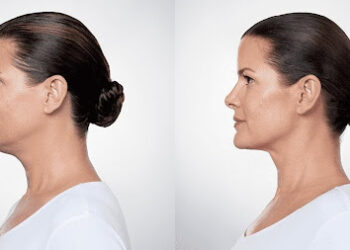Those seeking to rescue their marriage invariably aspire to elevate its overall quality—a goal where the dynamics between partners play a pivotal role.
One week, your marital bliss may be at its peak, only to face challenges the next, a pattern mirrored by your spouse. Dr. John Grimani, the visionary behind LionHeart Marriage Coaching and an expert in neuropsychology and coaching, recognizes the validity in widely acclaimed relationship literature. However, he advocates exercising caution before wholeheartedly embracing every piece of relationship advice.
“If you’re under the impression that only complicated and trendy relationship advice is going to help you, I’d invite you to think again,” he says. “Sometimes it’s the simple things that you’re not seeing because you’re too deep in the situation.”
Instead of telling us what we should or shouldn’t be doing, Dr. John Grimani has some clear principles to help and guide you through the confusing process of saving your marriage.
These five pillars of a happy marriage form part of his new online master class series coming soon, MSN.com says. Two decades of seeing tens of thousands of clients and he knows what practically works for unhappy people with complicated lives.
“There’s also a host of different factors that will influence your marriage”, – says Dr. Grimani,- “for instance, your previous relationship history, your parents, how much stress you’ve taken in your life that might have affected your relationship, and therefore how you treat your spouse in everyday life.”
What these principles give you are the very solid foundations of the small things you can do every day that make a difference to your marriage and your overall happiness as well.
Prioritize the needs of your couple
Many couples, especially newlyweds, experience difficulties in changing their mindset from individualism to a couple-oriented one. Before marriage, we all tend to selfishly worry about our own needs. When after a marriage a huge shift should happen – to think of what’s best for us and our spouse.
Another struggle is to keep the balance between satisfying your desires, caring about the wishes of your spouse, and finding a compromise for the best interest of the union.
Important to remember – that you don’t have to be a selfless martyr to save your marriage. You don’t have to ignore your own needs and desires and focus only on your spouse. “That is frankly unrealistic for most people, nor do I think most people need to do that,” says Dr. Grimani.
Humans are biologically wired to have their desires. And there’s a good reason for that. “We’ve got to remember that our caveman and cavewoman brains are created for survival and those are our hidden natural strengths. Our ability to be selfish and recognize our wants and needs while still being empathetic to others is a superpower for humans. It’s what allows us to have personal happiness as individuals, make our spouse happy, and build our marriage together.”
Finding the balance requires constant conscious effort. “Retrain your brain”. – says Dr. Grimani, – “Try to teach your mind that being a giver in the relationship is something that eventually will lead your marriage to success. You may have to sacrifice your desires a couple of times but eventually, it will create the positive energy and thoughts in the mind of your partner that will allow them to accept your desires in response. Your brain should agree with a simple idea – creating happiness for your spouse creates happiness for you.”
In his practice, Dr. Grimani identified several crucial keys that allow couples to restore balance and teach themselves to think together as a team choosing the best strategy for them as a couple.
– Accept the disagreement – two separate individuals with different backgrounds and behaviors will inevitably sometimes lose a common ground. It doesn’t mean immediately that you’re incompatible. It means you need to understand each other better.
– Communicate – constant communication, willingness to express your true feelings, and courage to be vulnerable in front of your partner will allow you to keep the relationship open and identify the areas of conflict.
– Show respect – even if your spouse makes a decision you’re uncomfortable with, the right way is to accept it. If they’re taking the wrong step your role is to support them and be helpful and respectful.
A positive Mindset is Everything
Using the power of positive thinking is a long-standing phenomenon in psychology. Yet this way of thinking has rarely been applied to the institution of marriage. Despite the ongoing debate in both public and academic circles, Dr. Grimani is sure that positive thinking about one’s marriage becomes beneficial for both individuals and couples.
The researchers tried to answer the question if positive beliefs about marriage were linked to better marital well-being. Neuropsychologists aimed to identify if having a positive perception of marriage created a joint “pro-marriage” environment that also benefited marital dynamics.
As a result, it was proven that both husbands and wives who were more positive about their marital role appeared to be more committed to their partner, which led to better relationship satisfaction and higher reports of positive communication.
Your mindset and attitude influence your communication abilities, but most importantly affect the general atmosphere, moods, level of tension, or happiness in your family.
In most cases, we are to choose our attitudes and control our mindset. It’s up to our choice to stay on the negative or aggressive side that burdens and demotivates our spouse and places unnecessary stress on our relationship. A positive state of mind sets us up for long-term success.
“Most people underestimate the power of positive thinking. Especially when it comes to marriage. The reason is that the sphere of personal relationship is so deeply emotional and the rational approach of choosing the attitude doesn’t always work if you are not trained. When your marriage is broken and pain overwhelms you daily without the right support and practical knowledge it’s very hard to control your attitude.”
To make the process easier, focus on long-term benefits. Every time you fail to cope with your emotions and allow the negative mindset to influence your behavior you throw yourself back and push away the possibility of having a thriving marriage.
On the contrary, positive thinking makes you intentional. You don’t flow along with negative patterns you got used to but you actively work to make your vision real.
Connect! Connect! Connect!
The first pitfall to look out for, says Dr. Grimani, is loss of connection in real life. “If you crave connection in your relationship you may be surprised to know how much time you spend with your spouse. This is why people are struggling so much because a lot of us are distracted by screen scrolling and virtual relationships instead of focusing on quality time with our partners. And therefore your spouse is waiting for a connection that’s being missed, while you are craving the very same connection.”
This could be fixed with as little as 6 meaningful interactions a day. Small meaningful interactions with your spouse will bridge the gap that has grown between the two of you. These interactions could be: checking in with each other, simple physical touch, acts of kindness or service, compliments, loving sight, or a smile.
Daily investments into building a bond with your spouse can be more sustainable than some grand big gesture of connection. Vacation or date nights are great but not always possible. “Then you’re maintaining closeness daily while still sometimes making time for special moments. But never miss chances throughout the day to connect with your spouse.”
A major pitfall of loss of closeness with your spouse is that it becomes harder and harder to recreate it over time. In terms of connection effort is everything.
Trust is foundation
Trust is the foundation of any relationship and it’s twice as important in marriage. Safety, openness, and vulnerability go next to belief in marriage creating trust. It has much to do with assurance that your spouse holds the best interest at heart and that you are valuable to them. Without this mixture, we cannot expect a marriage to survive.
Do you keep your word? Can I count on you? Will you be there for me? Will you be faithful to me? Will you choose me over your family and friends? Affirmative answers to questions like these identity trust in relationships.
“Trust is NOT inequality, abuse, lack of empathy, feelings of disconnect and inconsistency, and failing to fulfill commitments. Here’s a real-life example.
One of my clients needed her husband to be affectionate, emotionally available, and present when she needed him or had feelings of self-doubt. He instead consistently ignored her needs and neglected her feelings. Instead of trusting her husband during her most vulnerable moments, she had to rely on other people to fill that gap.
What do we see from this example -the husband was ruining trust, showing he wasn’t reliable and pushing his wife further away to search for support elsewhere. While actually, he could strengthen the bond by the simple presence and active listening.” – shares Dr. Grimani.
At the end of the day, trust in marriage makes both of you feel safe, backed, honored, valued, and loved.
Dr. Grimani emphasizes three main principles to rebuild trust :
– Honest communication – be truthful with your spouse, don’t hide or embellish facts. It might be uncomfortable at the beginning but transparency about your emotions and reactions is a key component.
– Consistency in words and actions – breaking your promises leaves no choice to your spouse but to lower the expectations they have for you. Be accountable and make sure your actions reflect your words.
– Give your partner some space – it took some time to kill the trust in the relationship, and now you’ll need some more time to rebuild it. Be patient with your partner, respect the boundaries, and wait for them to start opening their heart to you again.
Be courageous to ask for advice
Many people struggle to ask for help trying to fix their relationship on their own. Unfortunately, very often they achieve the opposite results pushing their spouses even further away.
Asking for support makes many of us feel weak, incompetent, or inferior. We don’t want to be rejected or fail, embarrass ourselves, or bring more pain into our lives. Asking for help from friends or family may create a feeling of burdening or inconveniencing others.
We got used to movie stories about help that come out of nowhere, and that may explain why random acts of kindness go viral on social media. But in real life, the majority of help occurs only after a request has been made. It’s often not because people don’t want to be supportive – they are usually unreliable sources to get advice from. On the other hand, people who know exactly how to help will not save you unless you reach out to them. A direct request to a professional can remove a lot of your suffering or struggle.
“I always encourage people to seek professional help. If you have a toothache – you go to a dentist, if your pipe leaks – you call a plumber, if you want to lose weight – you hire a trainer. The same works for relationships. Your spouse became distant? Do you fight more than you talk? Did you move to another bedroom? Have you already heard the word divorce? It all means you need the help of a professional marriage coach to guide you. Neuropsychology is power. It can give you knowledge and skills to rebuild your relationship and create a better marriage than you’ve ever had before. You just need to take the first step.” – says Dr. Grimani.







